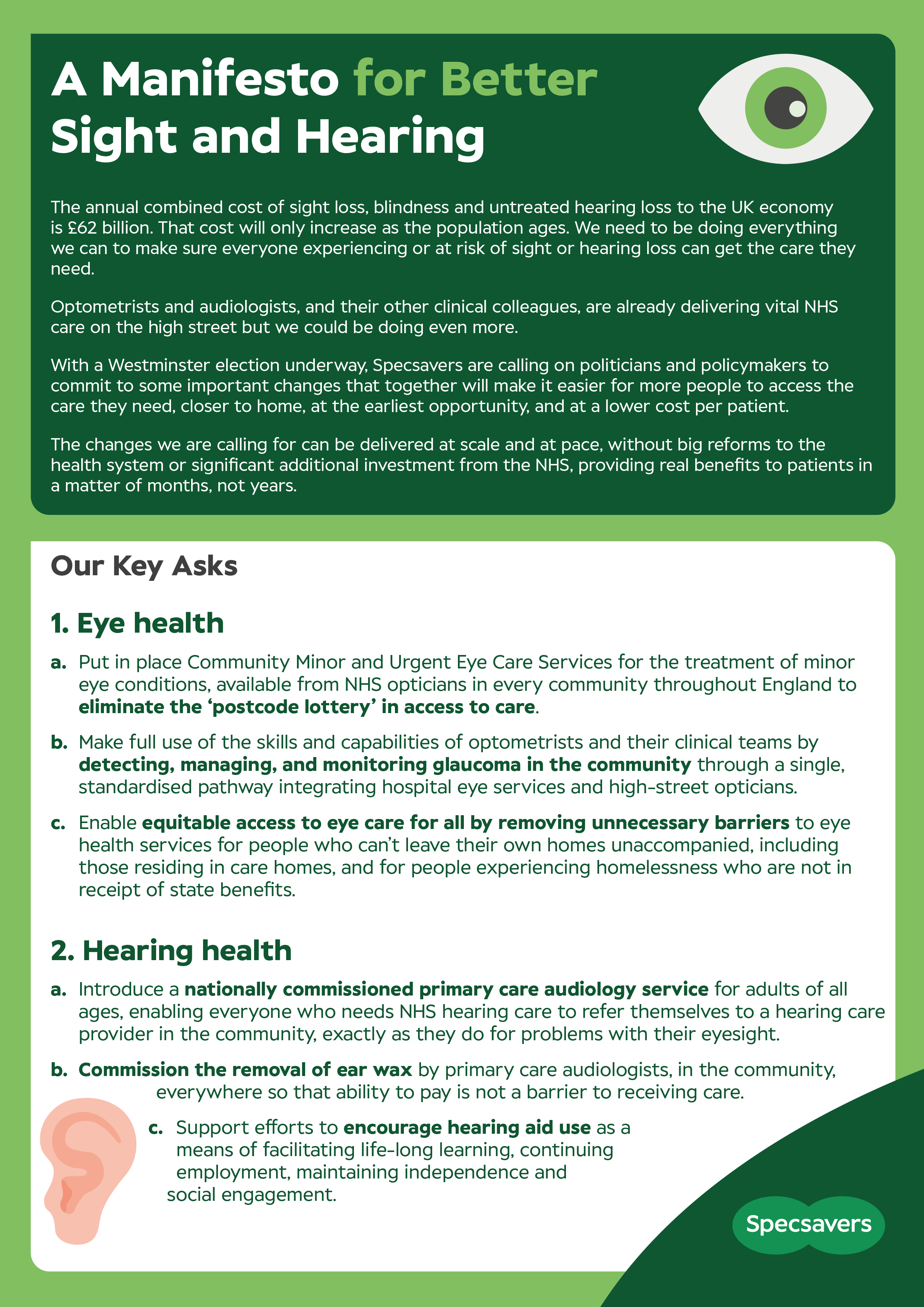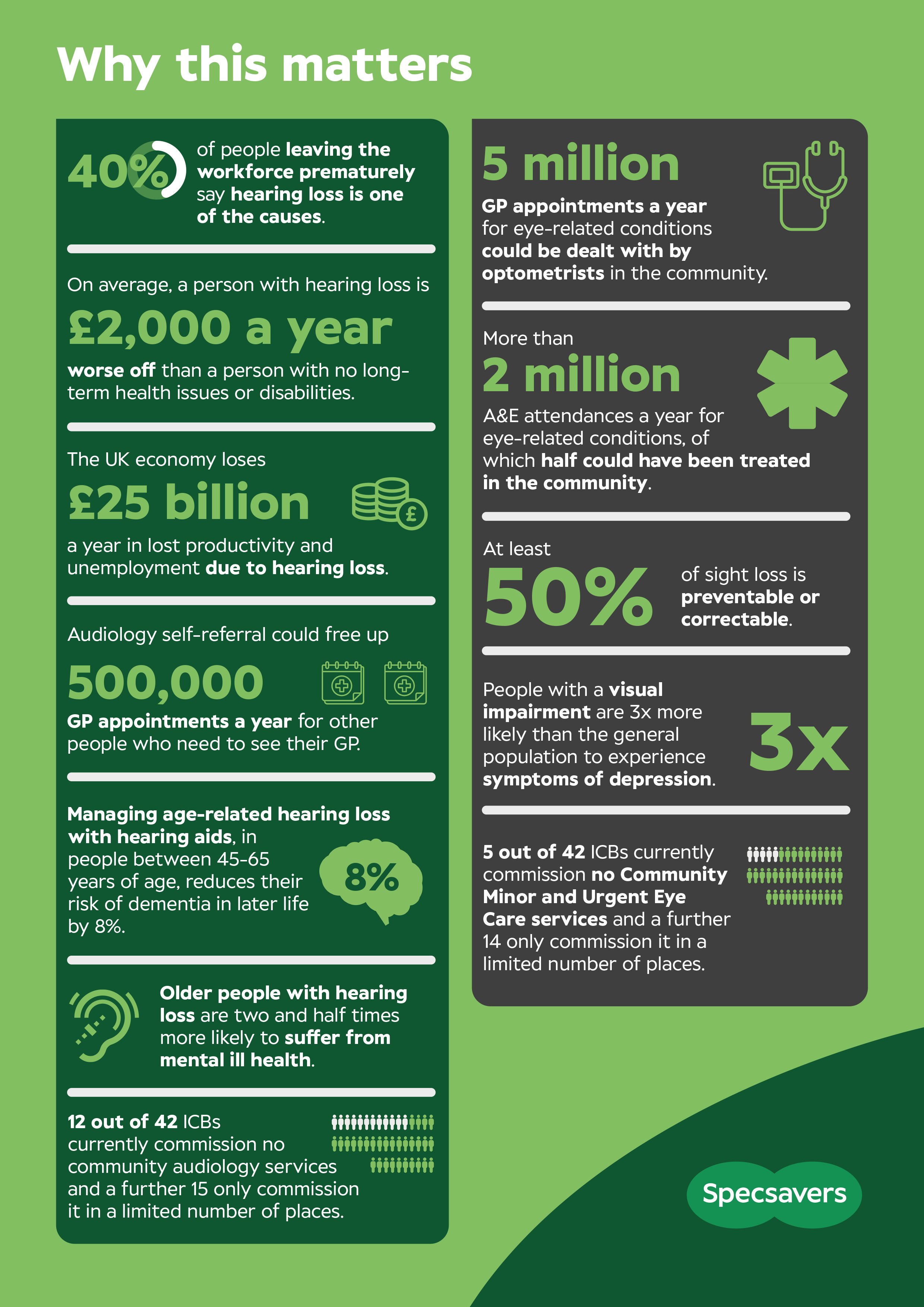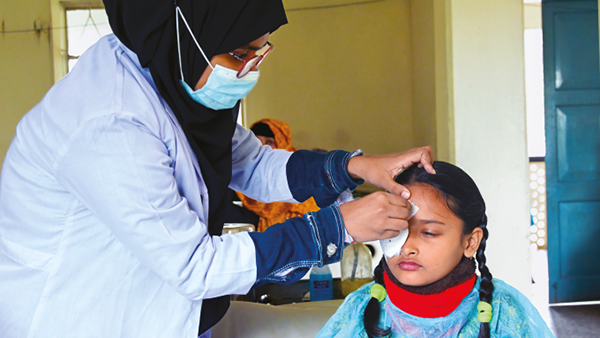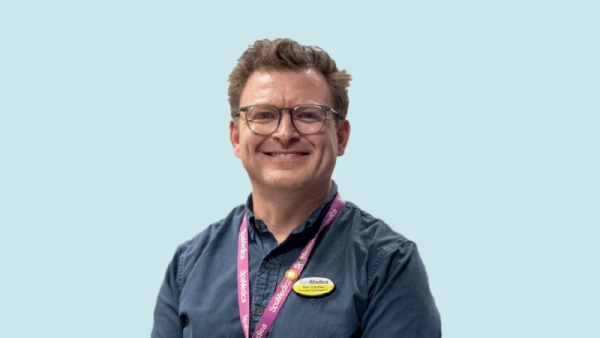You are viewing 1 of your 3 articles before login/registration is required
The Optometrist’s Manifesto
Specsavers releases new hearing and vision loss manifesto ahead of the general election
In advance of the UK’s general election, Specsavers has released its own “manifesto” highlighting the need for renewed focus on the nation’s vision and hearing. The manifesto, which contains six “key asks,” opens with a sobering statistic – vision and hearing loss, when left untreated, creates an estimated annual cost of £62 billion for UK taxpayers.
To address this impact, Specsavers argues that optometrists and audiologists, while already delivering vital NHS care to patients, could continue to play a much larger role if certain policies were adopted. This is where the “key asks” come into play - See below.
In a bid to eliminate the current “postcode lottery” that affects access to NHS care, the manifesto recommends that Community Minor and Urgent Eye Care Services be set up in every community in England. Specsavers is also advocating for a single standardized pathway – incorporating both hospitals and opticians – to provide better glaucoma treatment within the community, as well as removing barriers to eye care services for the most vulnerable. “Unnecessary barriers to eye health services should be scrapped in England for people who can’t leave their own homes unaccompanied, including those residing in care homes and for people experiencing homelessness not in receipt of state benefits,” says Specsavers clinical services director, Giles Edmonds.
Edmonds is adamant that primary care optometrists operating in the community could help to save millions in GP consultations, routine hospital appointments, and A&E cases every year. “We are a friendly face to patients delivering healthcare closer to home,” he says. “With a consistent commissioning and funding approach, we can do even more to help patients and free up capacity in busy hospitals.”
Regarding hearing loss, the manifesto’s requests include the establishment of a “nationally commissioned primary care audiology service” so that everyone is able to access a hearing care provider. Specsavers’ Director of Professional Advancement in Audiology, Gordon Harrison, says this type of service “will enable everyone who needs NHS hearing care to refer themselves to a hearing care provider in the community, exactly as they do for problems with their eyesight.”
The final “key ask” is to encourage people with hearing loss to wear hearing aids to improve their employment and educational prospects, boost their independence, and prevent them from becoming isolated. “The Association for Primary Care Audiology Providers commissioned research to show that, if access to primary care audiology was improved, almost all these people could have their needs met more conveniently, and more cost effectively for the NHS, in primary care,” says Harrison.
What’s more, Edmonds iterates that all of these recommendations “can be delivered at scale and at pace, without big reforms to the health system or significant additional investments from the NHS.”
The New Optometrist Newsletter
Permission Statement
By opting-in, you agree to receive email communications from The New Optometrist. You will stay up-to-date with optometry content, news, events and sponsors information.
You can view our privacy policy here
Most Popular
Sign up to The New Optometrist Updates
Permission Statement
By opting-in, you agree to receive email communications from The New Optometrist. You will stay up-to-date with optometry content, news, events and sponsors information.
You can view our privacy policy here
Sign up to The New Optometrist Updates
Permission Statement
By opting-in, you agree to receive email communications from The New Optometrist. You will stay up-to-date with optometry content, news, events and sponsors information.
You can view our privacy policy here










